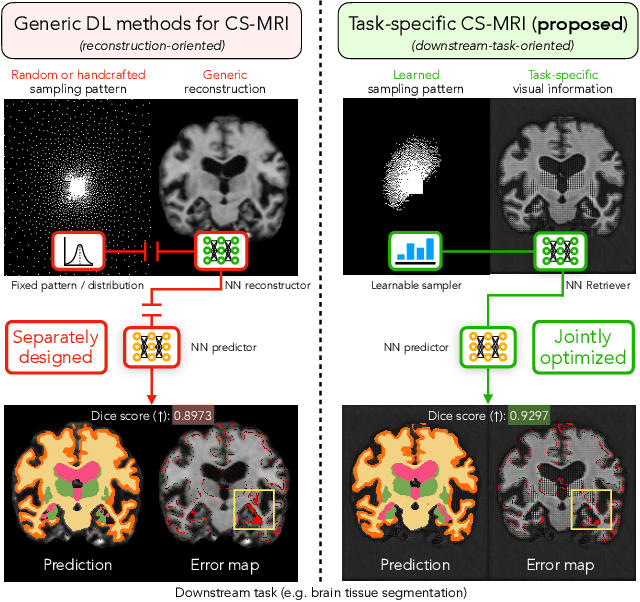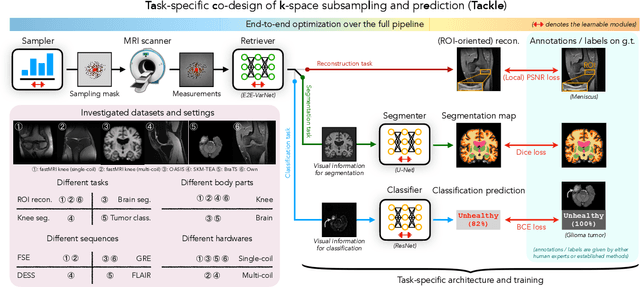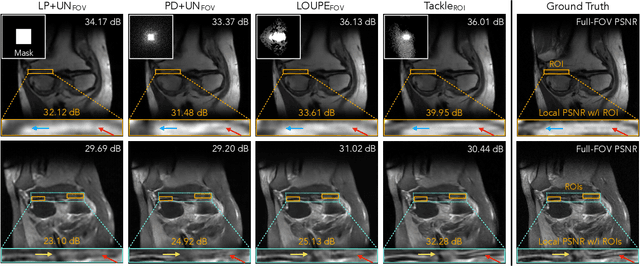Learning Task-Specific Strategies for Accelerated MRI
Paper and Code
Apr 25, 2023



Compressed sensing magnetic resonance imaging (CS-MRI) seeks to recover visual information from subsampled measurements for diagnostic tasks. Traditional CS-MRI methods often separately address measurement subsampling, image reconstruction, and task prediction, resulting in suboptimal end-to-end performance. In this work, we propose TACKLE as a unified framework for designing CS-MRI systems tailored to specific tasks. Leveraging recent co-design techniques, TACKLE jointly optimizes subsampling, reconstruction, and prediction strategies to enhance the performance on the downstream task. Our results on multiple public MRI datasets show that the proposed framework achieves improved performance on various tasks over traditional CS-MRI methods. We also evaluate the generalization ability of TACKLE by experimentally collecting a new dataset using different acquisition setups from the training data. Without additional fine-tuning, TACKLE functions robustly and leads to both numerical and visual improvements.
 Add to Chrome
Add to Chrome Add to Firefox
Add to Firefox Add to Edge
Add to Edge